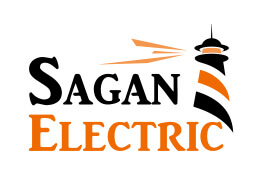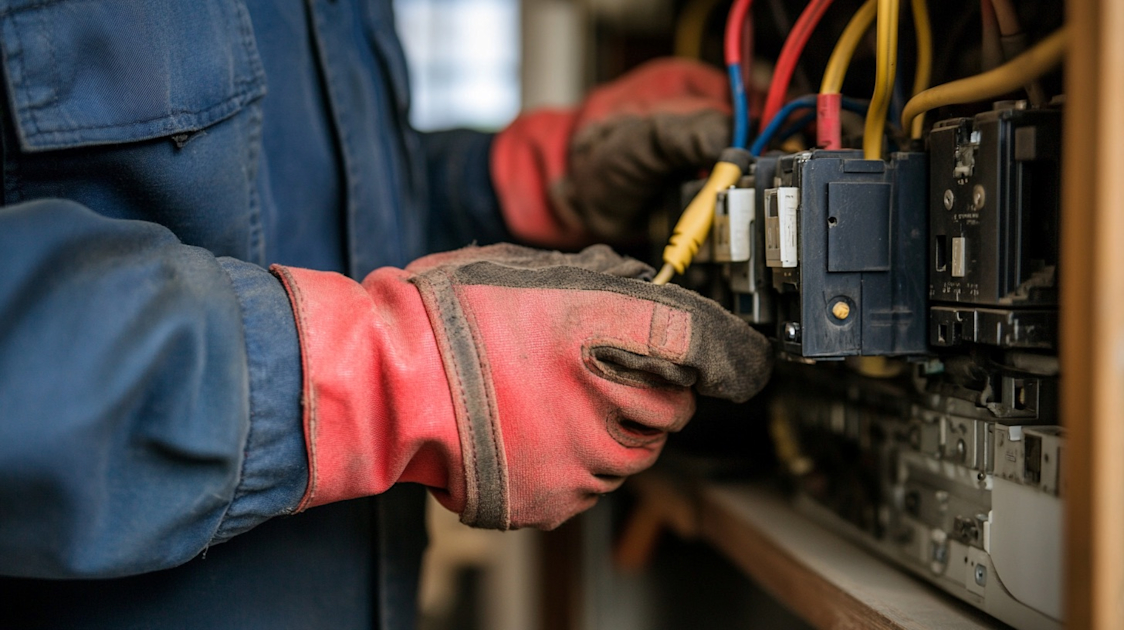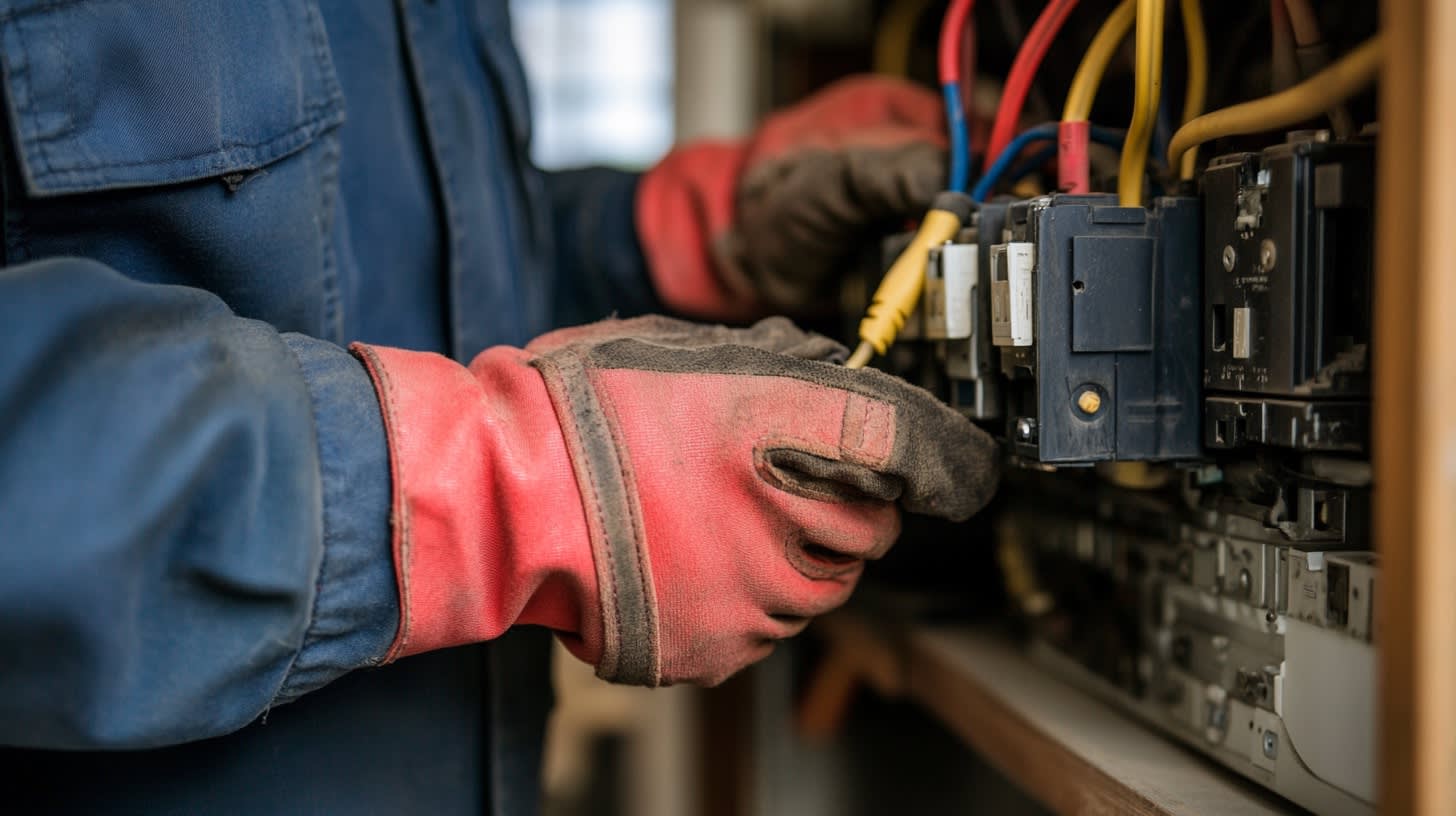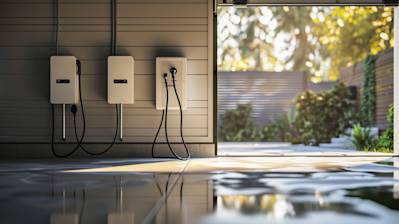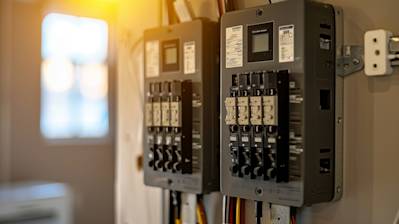Electrical gloves, though not glamorous, are crucial to your security if you engage in electrical tasks, whether simple or complex. This guide aims to take you deeper into the world of electrical gloves and provide detailed information on their function, types, and selection process.
The Crucial Role of Electrical Gloves
Electrical gloves are a type of personal protective equipment (PPE) designed to create a barrier between your hands and hazardous electrical currents. Fundamentally, they aim to protect users from electrical injuries such as electrocution and burns.
Electrical gloves are often made of rubber, a material known for its high dielectric and physical strength, combined with flexibility. The main advantage of rubber is its high resistance to electric currents, which makes it an excellent insulator.
Remember that electrical shocks aren't the only risk you face when working with electricity. There's also the threat of arc flashes—sudden and dangerous discharges of electricity that can cause severe burns.
Let's now delve deeper into the different types of electrical gloves available in the market, which takes us to the next section of this guide.
Unveiling Different Types of Electrical Gloves
Electrical gloves come in varying types designed for different uses, voltages, and environments.
Low Voltage Gloves: These gloves are designed to protect up to 1,000 volts AC. They are the go-to option for most electricians.
High Voltage Gloves: High voltage gloves protect against electrical threats above 1,000 volts AC. They're commonly used in industrial settings.
Leather Protective Gloves: They provide mechanical protection over rubber insulating gloves, increasing the lifespan of the gloves underneath.
How to Select the Perfect Electrical Gloves
Identifying the right gloves for your electrical work is critical for your safety. The following factors are essential in your selection process:
Voltage Rating: Your gloves should be suitable for the voltage of the equipment you're working on. Always ensure your gloves are rated above the maximum voltage you're handling.
Glove Construction: Confirm the construction materials of the gloves. Rubber is the most popular choice, but other options such as silicone or insulated synthetic materials are also available.
Glove Size and Length: Proper fit is essential for comfort and dexterity. Gloves should be neither too tight nor too loose. Additionally, consider the cuff length in relation to your tasks; longer cuffs provide extra protection to the forearm.
Certification and Compliance: Ensure your gloves meet the safety standards set out by organizations such as ASTM International or the European standard EN 60903.
Following these considerations can help you land the right protective gear and guarantee your safety in all your electrical operations.
Maintenance and Testing of Electrical Gloves
One common mistake among workers is neglecting the maintenance and testing of their gloves. Faulty gloves might fail to protect you, resulting in serious injuries or even death.
Checklist for Proper Glove Maintenance
- Regular visual inspection for cuts, punctures, and tears
- Air testing to check for air leaks
- Storage in a cool, dry, and dark place to prevent degradation
- Never folding or compressing the gloves
The Need for Regular Glove Testing
Over time, the insulating properties of your electrical gloves may degrade. Regular testing is therefore crucial to ensure your safety. It's recommended to have your gloves tested every six months for low voltage and every three months for high voltage.
Frequently Asked Questions about Electrical Gloves
What Materials are Used to Make Electrical Gloves?
The majority of electrical gloves are made from natural rubber due to its exceptional insulating properties. They can also be made from synthetic materials such as rubber, plastic, and silicone that have been treated to withstand high voltages. Some gloves also include a blend of both natural and synthetic materials for improved performance and durability.
How Does the Rating System for Electrical Gloves Work?
Electrical gloves are rated based on their resistance to voltage and thus their safety when used in electrical work. Classes range from 00 to 4, with Class 00 gloves being resistant to the lowest voltage (up to 500 volts), and Class 4 gloves capable of resisting the highest (up to 36,000 volts). The rating needed will depend on the specific task or environment in which the gloves will be used.
How Often Should Electrical Gloves be Tested?
According to the American Society for Testing and Materials (ASTM), there are specific intervals at which electrical gloves should be retested. That's generally every six months for in-service gloves and prior to the first issue. Depending upon their use, some gloves could require more frequent testing.
Can I Wear Electrical Gloves with Metal Jewelry?
No, you should not. Metal jewelry can conduct electricity and potentially cause electric shock, even with the gloves on. Therefore, before putting on your electrical gloves, it’s essential to remove all metal jewelry.
Is it Necessary to Wear a Leather Protector Over Electrical Gloves?
Yes, it is recommended to wear leather protectors over electrical gloves for a few reasons. Firstly, it provides mechanical protection from cuts, abrasions, and punctures. Secondly, the leather protector will provide insulation from the cold as well as heat.
How Should Electrical Gloves be Stored?
Proper storage of your electrical gloves is important to maintain their effectiveness. They should be stored in a cool, dry place away from direct sunlight. Additionally, it's worthwhile to store them in a protective bag to prevent any physical damage, such as punctures or tears. Do not fold the gloves as this can lead to creases, which can compromise their protective properties.
What Should I do if My Electrical Gloves are Damaged?
If your electrical gloves have any visible damage like cuts, punctures, tears, or signs of degradation such as stiffness, discoloration, or cracking, they should no longer be used. If in doubt, the gloves need to be replaced or sent in for testing immediately.
How Should I Clean My Electrical Gloves?
For best results, it's recommended to use mild soap and water for cleaning. Rigorously wash them and then rinse thoroughly, as soap residue can reduce the glove's electrical resistance. After washing, let them air dry out of direct sunlight. It's important to remember not to use any solvents or harsh chemicals for cleaning as these could degrade the glove's protective qualities.
Can Electrical Gloves Be Recycled?
The recycling possibilities mainly depend on the material of the gloves. While some industrial gloves are recyclable, others are not due to the compounds used in them. For accurate information on how to dispose or recycle your electrical gloves, it's best to consult the manufacturer or supplier.
How Long Do Electrical Gloves Last?
The lifespan of electrical gloves depends on multiple factors such as their care, storage, usage, and the overall quality of the gloves. With proper care and maintenance, most electrical gloves can last between 6 to 12 months, While gloves intended for heavy-duty or frequent use may have a shorter lifespan.
Pros of Electrical Gloves
High-Level of Protection
One of the most significant advantages of electrical gloves is that they offer a high level of protection against electrical hazards. Designed with a non-conductive material, these gloves shield the hands of the user from electrical shocks that could lead to severe injury. Regardless of whether you're an electrician working on high-voltage wires, or a homeowner doing some DIY electrical repair work around the house, electrical gloves can keep you safe from unexpected accidents.
Compliance with Safety Standards
Electrical gloves can help ensure compliance with safety standards. They are crucial for meeting the requirements of the Occupational Safety and Health Administration (OSHA), which sets the guidelines for workplace safety. By using these gloves, employers adhere to OSHA standards, hence avoiding citations and potential lawsuits related to workplace injuries.
Available in Different Ratings
Electrical gloves come in various classifications. They are rated according to the maximum voltage they can handle. This means you can select gloves that match the specific needs of your job. For instance, Class 00 gloves are sufficient for low-voltage applications, while Class 4 gloves can handle up to 36,000 volts.
Durable and Long-lasting
With proper care and maintenance, electrical gloves can last for quite some time. They are durable and robust, allowing you to work comfortably in different environments without fear of them wearing out quickly. Some manufacturers even add extra features such as cut or puncture resistance to increase the lifespan of the gloves.
Variety of Sizes and Styles
Electrical gloves come in a vast range of sizes and styles. This ensures that everyone, regardless of their hand size or work theme, can find the perfect fit. Some gloves have the added benefit of having a soft lining for comfort, and others are made of tougher materials to withstand the rigors of heavy industrial work.
Cons of Electrical Gloves
Require Regular Testing
Electrical gloves, as protective equipment, need to be tested regularly. Without consistent testing for integrity and safety, they may fail to provide the required protection. This means extra time and investment for businesses who need to adhere to safety protocols.
Potential Comfort Issues
Some users might find electrical gloves uncomfortable to wear for extended periods or awkward for certain tasks. Such complaints may include excessive sweating, stifling sensation, limited dexterity, or difficulty in manipulating small details like screws and bolts.
Potential Allergic Reactions
Some people may experience allergic reactions to the materials used in these gloves, such as rubber or latex. Symptoms include itching, redness, swelling, or even difficulty breathing in severe cases. Therefore, users must be aware of their allergies before choosing their electrical gloves.
Can Be Costly
While the level of protection they offer is unmatched, high-voltage electrical gloves can get quite expensive. This could be a deterrent for individuals or small businesses on a tight budget.
Maintenance and Storage
Electrical gloves require a good deal of maintenance and specific storage conditions to ensure their longevity. They should be kept out of direct sunlight and away from heat sources, as these can degrade the insulation materials. They must also be regularly inspected for any signs of wear and tear, which means they can't just be tossed in a toolbox when not in use.
Summary
So there you have it. Electrical gloves aren't just a safety accessory, they're a critical aspect of working with electricity. They protect your hands by insulating them from dangerous current, allowing you to safely handle live or potentially live parts of an electrical system. Their importance in ensuring safety cannot be overemphasized.
Electricity presents a great risk to those working closely with it regularly and without the right protection, you're literally playing with fire. That's where electrical gloves come into play. These gloves are specifically designed to resist electrical shocks, providing an important layer of protection for electrical workers. It's a crucial tool in the toolbox of any professional who needs to handle electrical workings on a day-to-day basis.
But remember, just having electrical gloves isn't enough -- you need to maintain them properly too. They're not invincible and can wear out with extended use, potentially reducing their protective qualities. Regular checks for damage or degradation are necessary to ensure their efficacy. All in all, with the right electrical gloves and proper maintenance, you can greatly minimize the risks associated with working with electricity. Safety first!
About Sagan Electric
Sagan Electric is your go-to electrical service provider in Sacramento, CA. But hey, we're not just a company, we’re a family-oriented team of experts committed to lighting up your lives (quite literally!). We bring over 15 years of experience to each switch we flip and every outlet we install. Professional yet personable, we handle all aspects of residential and commercial electrical systems. No job's too big or too small for us! At Sagan Electric, we're all about powering connections, and not just the electrical ones. So come, join the Sagan family and experience the best electrical services in town.
Tags: insulated gloves, safety gear, electrical protection,
